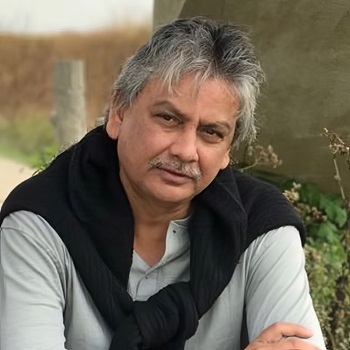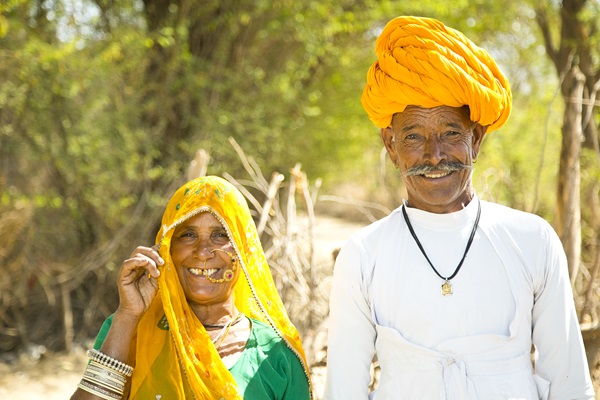.png)

Michael Patra is an economist, a career central banker, and a former RBI Deputy Governor who led monetary policy and helped shape India’s inflation targeting framework.
June 16, 2025 at 6:10 AM IST
Among the fundamental metaphysical questions that remain unanswered is immortality (the others being God and self). Yet, human endeavour stretches out for it tirelessly. We pray, procreate and ponder as if we will live forever; but we plan, protect and prepare as if we will die tomorrow. This is the quintessential dilemma of human life.
The generation that walks the earth today will be the longest lived in history. According to the World Health Organization (WHO), global life expectancy increased from 66.8 years in 2000 to 73.1 years in 2019 – about 20 seconds every hour.
Even healthy life expectancy (HALE), which is the average number of years a person can expect to live in full health without significant limitations due to disease or injury, went up by 17 seconds per hour.
The COVID-19 pandemic wreaked havoc, setting back both life expectancy and HALE by a decade, but recovery has begun. Statista, an online platform that specialises in data gathering and visualisation, has estimated that global life expectancy has climbed back and crossed its 2019 level in 2024, but with a wide variance ranging from 85 years in Japan to 55 years in Chad and Nigeria - but well above the average global life expectancy of 47 years in 1950. By 2081, it will exceed 80 years, defying the biblical prediction that “the days of our years are threescore years and ten; and if by reason of strength they be fourscore years, yet is their strength labour and sorrow; for it is soon cut off, and we fly away...”
Still, it was not always so. The late British economic historian, Angus Maddison, estimated that life expectancy during the first millennium AD averaged about 25 years.
In 1000 AD, global life expectancy was 24 years and it remained so for several hundred years due to high rates of infant and child mortality. Those who survived into adulthood could expect to live until their fifties or sixties at best. Pandemics, food shortages and wars produced spikes in mortality quite regularly in this period.
From 1700 AD, improvements occurred on the back of agricultural development and growth of medical knowledge. The watershed came in the 1800s with vaccination, better sanitation, more control over epidemics, improved nutrition and higher living standards. Child mortality declined sharply and the phenomenon of demographic transition spread across continents.
In India, the dark ages reigned longer, with life spans ranging between 22-25 years into the 1800s and the early 1900s, and plunging to 21 years in 1920 in the throes of the Spanish flu. As the economist and historian, Chinmay Tumbe wrote in his fascinating book Age of Pandemics: “once upon a time, we died before we lived." An Indian born on January 26th 1950 when India became a republic would not have lived to see the celebrations of 75 years of independence - life expectancy at birth was 41.2 years, half a decade less than the global average.
But progress has been dramatic. By 2016-20, life expectancy had crossed 70 years.
Like in the rest of the world, the COVID-19 pandemic was a huge setback. According to data released recently by the ministry of health, the number of excess deaths in 2020-2021 was significantly higher than estimated earlier and life expectancy dropped to 69.8 years during 2017-21. Life expectancy is rising again, however, and it is projected to be 75 years and 80 years for men and women, respectively, by 2050. In India, as in the rest of the world, 80 is set to become the new 65.
India’s achievement is impressive in view of its large and diverse population. Going forward, we must grow rich before we grow old so that our lives are well lived.
But as Rosalind Barnett, psychologist, and Caryl Rivers, novelist - also co-authors - point out, every forecast of longevity has fallen short, impervious to obesity, heart attacks, global warming and even pandemics. Rises in life expectancy have been habitually underestimated because it seems unlikely that the improvement could go on forever.
Some experts now think there may be no theoretical limit at all. Thanks to astonishing advances in science and technology, not only is life getting longer, but even old age is getting longer, healthier and happier as life ending moments of reckoning get pushed out further – the compression of morbidity. As the poet John Keats wrote To Autumn: “Where are the songs of spring? Ay, where are they? Think not of them, thou hast thy music too –.”
If these advances continue into this century, it is possible to imagine the conquest of remaining chronic illnesses, disability from frailty and inexorable sickness. Already, people in their sixties look and act like they are in their fifties. The key to unlocking the longevity dividend is to make them more active economic participants, making longer lives more financially viable as well as productive and pleasant.
If work conditions metamorphose to make it congenial for expanding the working age cohorts in populations, incomes, savings, investment and productivity will go up and contribute to higher societal welfare. If social institutions improve alongside, the quality of life even beyond 80 will become better. Staying healthy for longer, the thinking goes, will make people happier, putting less strain on medical systems, and on government budgets.
In fact, as longevity grows, shrinking that gap between life expectancy and HALE can become a central pillar of public policy. Late adulthood will become the politically correct term, rather than old age. It will usher in the late bloom of creativity; in the words of the American novelist John Updike: “Being an older writer has the benefits of seeing the world in the context of passing time.” It will become possible to visualise a re-‘tireless’ working life in a multigenerational workforce, redefining cohabitation and intimacy, revelling in the undiminishable joys of grand parenting.
The longer-term hope is to find a way of switching off the ageing process by manipulating the appropriate genes which, in theory, could make people live on. Humankind’s dream has been to conquer ageing altogether, and we are working on it to make it just a figure of speech. In the lyrical slant verse of the poet Emily Dickinson, “Because I could not stop for Death — He kindly stopped for me —The Carriage held but just Ourselves — And Immortality.”




